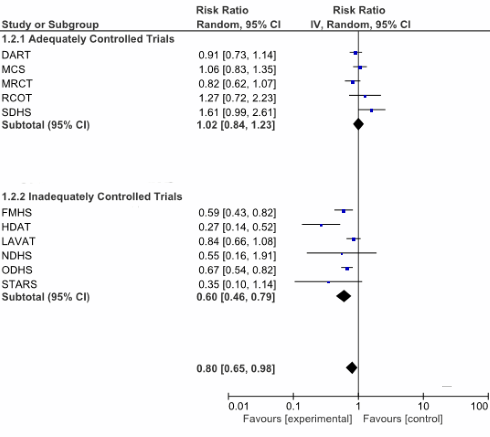 |
|
Omega-6-vetzuren beter voor hart en bloedvaten dan verzadigd vet? Methodologische fout, zegt onderzoeker
Er is iets niet helemaal pluis met de studies op basis waarvan voorlichters en voedingswetenschappers concluderen dat je beter zonnebloemolie, maiskiemolie en andere producten met veel omega-6-vetzuren kunt eten dan levensmiddelen met veel verzadigd vet. Volgens de Australische voedingswetenschapper Steven Hamley zit er in veel van die studies een methodologische fout. Laat je die foute studies even buiten beschouwing, en kijk je alleen naar de studies die wel door de beugel kunnen, dan blijken er ineens geen aanwijzingen meer te zijn dat het goed voor hart en bloedvaten is om verzadigde vetzuren te vervangen door omega-6-vetzuren.
Studie
In zijn studie, die is verschenen in Nutrition Journal, keek Hamley naar belangrijke trials waarin onderzoekers het dieet van groepen proefpersonen wijzigden, en de verhouding tussen de verzadigde [SFA] en de omega-6-vetzuren [PUFA] veranderden. Dat gebeurde door voedingsadviezen.
De tabel hieronder geeft je een indruk van die trials.
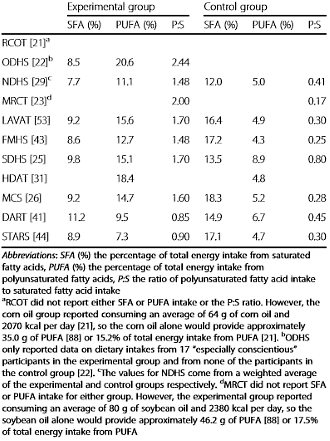
"I researched the clinical trials included in the previous meta-analyses and found that the dietary advice or the foods given to the participants in the trials would be expected to result in the high PUFA group having a lower intake of trans fats (to varying degrees) compared to the high SFA group", schrijft Hamley op zijn blog. [stevenhamley.com.au May 21, 2017] [Offline]
"I also found other confounding variables such as two trials where the high PUFA group received a multifactorial dietary intervention, one trial where the high SFA group was given a vitamin E deficient diet, and another trial where the high SFA group received more antipsychotic medication that was found to be cardiotoxic. These issues were rarely discussed or taken into account by the previous meta-analyses."
Resultaten
Hieronder zie je wat er gebeurde toen Hamley de gegevens van de 'goede' [adequately controlled trials] en de 'foute' [inadequately controlled trials] studies bijeen veegde en opnieuw analyseerde. Alleen uit de foute trials bleek dat de vervanging van verzadigde vetzuren door omega-6-vetzuren resulteerde in minder hartaanvallen en beroertes.
De figuur hierboven is vereenvoudigd. Klik er op voor de volledige versie.
Of Hamley nou keek naar alle vormen van coronary heart disease [CHD] of alleen naar de ernstige, dat maakte niet uit. Volgens de 'goede' studies had vetzuurvervanging geen effect. Dat gold ook voor de kans op overlijden [mortality].
Conclusie
"This has implications for current dietary advice where recommendations to reduce saturated fatty acids and/or replace saturated fatty acids with mostly n-6 polyunsaturated fatty acids feature prominently, as maintaining these recommendations is unlikely to have the intended effect and may reduce efforts to get people to adopt other lifestyle changes that are more likely to be beneficial."
Bron:
Nutr J. 2017 May 19;16(1):30.
Meer:
Dieet met veel ontstekingsremmende factoren helpt hartaanval voorkomen (28-5-2017)
Kaliumrijk dieet beschermt tegen beroerte, vermindert sterftekans (4-5
-2017)
Minder glucose in je bloed, minder kans op een hartaanval (4-3-2017)
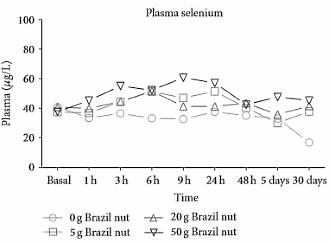 |
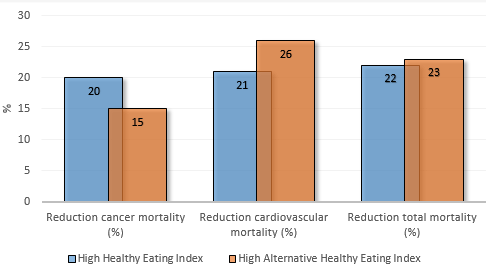 |
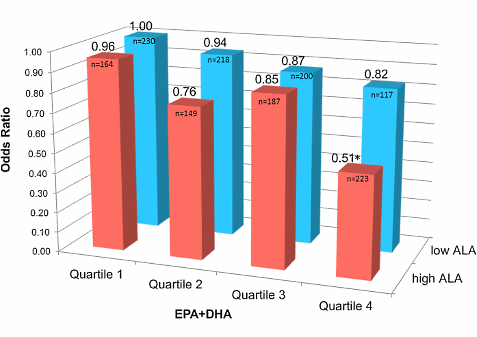 |
|
Positieve cardiovasculaire effecten handjevol paranoten houden maand aan Nadat je een handje paranoten hebt gegeten is gedurende een maand je cholesterolspiegel fors verbeterd. |
Dit dieet vermindert de kans op dodelijke hartaanvallen en beroertes Onderzoekers veegden de gegevens uit dertien epidemiologische studies bij elkaar en analyseerden die opnieuw. |
Vis beschermt pas goed tegen hartinfarct als je ook walnoten eet De omega-3-vetzuren in vis en visoliecapsules beschermen beduidend beter tegen hartinfarcten in combinatie met alpha-linoleenzuur - het omega-3-vetzuur in walnoten, lijnzaad en soja. Epidemiologie. |
